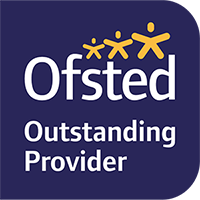Events

Preparing for your interview: A Q&A with Chartered College of Teaching Fellows
Preparing for your interview: A Q&A with CCT Fellows
We asked some of our Fellows to share the top two questions they ask at interview and what they are looking for in response:
Clare Rees, Headteacher, Havelock Primary School
What are you most proud of and what would you like more support with as an NQT?
I’m looking for passion and enthusiasm for what they are proud of and honesty and openness in what they want support with.
Can you tell me about a child that has made great progress, either academically or with their personal development?
I’d like a verbal case study, showing evidence of the candidate’s commitment to invest in relationships and that they really know their children well, whilst also beginning to see the power of teacher efficacy and the impact they can have on young people. As I’m interested in evidence-based approaches, I’d also look for the opportunity to find out what the candidate had read or heard about at university, and engage them in conversation about the research and how they have used this in class.
Stephen Bush, Leader of Professional Learning, Sackville School
In your training, you will have spent hours preparing lessons and completing planning proformas. Will your approach to planning change as your teaching load and pastoral duties increase?
We’re hoping that candidates acknowledge that planning every lesson in minute detail and in their own preferred style isn’t realistic with a significantly increased workload. We know that high-quality planning is crucial for effective behaviour management and progress, but many departments have a range of existing resources. To meet the demands of the job, NQTs must adapt these and learn to find a compromise between their preferred formats and those already on offer.
Which parts of your practice do you want to develop further and what support will you need?
Gaining qualified teacher status is a well-earned, significant professional achievement. However, it is only the first stage in an ongoing process of professional learning. The best teachers are those who, whilst recognising their strengths, are always seeking to develop their practice further. The ability to constantly reflect and articulate an accurate insight into your own professional learning needs, coupled with a genuine desire to seek help in addressing them, shows that you have the capacity to become a fantastic teacher.
Trystan Williams, Principal, Venturers’ Academy
Describe the approaches you take to enable students to:
a. make exceptional social and academic progress
b. develop the skills to effectively communicate and become independent, self-assured learners.
Candidates need to articulate how creative they are in dissolving possible barriers to learning for vulnerable students, reaching out across the entire learning community to offer support. We need focused taskmasters, who can drive and challenge, but at the same time be nurturing, supportive and empathetic, providing those in their company with rich, dynamic and diverse opportunities.
I need confidence that they are willing to strive to achieve the highest standards and outcomes for all students. Do they have a clear vision for what high-quality teaching and learning looks like? Do they have the potential to blossom into a great practitioner and role model? Will their students be supported to develop characteristics that will support them throughout their lives?
Jonathan Johnson, CEO, West Lakes Multi-Academy Trust
Why are you here?
I’m looking for someone to articulate that this is the only place they want to work and to give reasons, based upon research, of why what we do resonates with them on a personal and professional level. I want them to demonstrate that they can believe in our vision to provide an educational experience that is excelled by no one. They have to demonstrate that they care enough to make a difference to these children, not children generally.
What’s the most important thing you have done so far that’s had the biggest impact on children and how do you know?
I’d like the candidate to show that they are constantly thinking about what worked best, the contributing factors that led to it, and what measures they used. Crucially, I want someone to reflect on and question their own performance, which demonstrates that they are someone who wants to learn.
